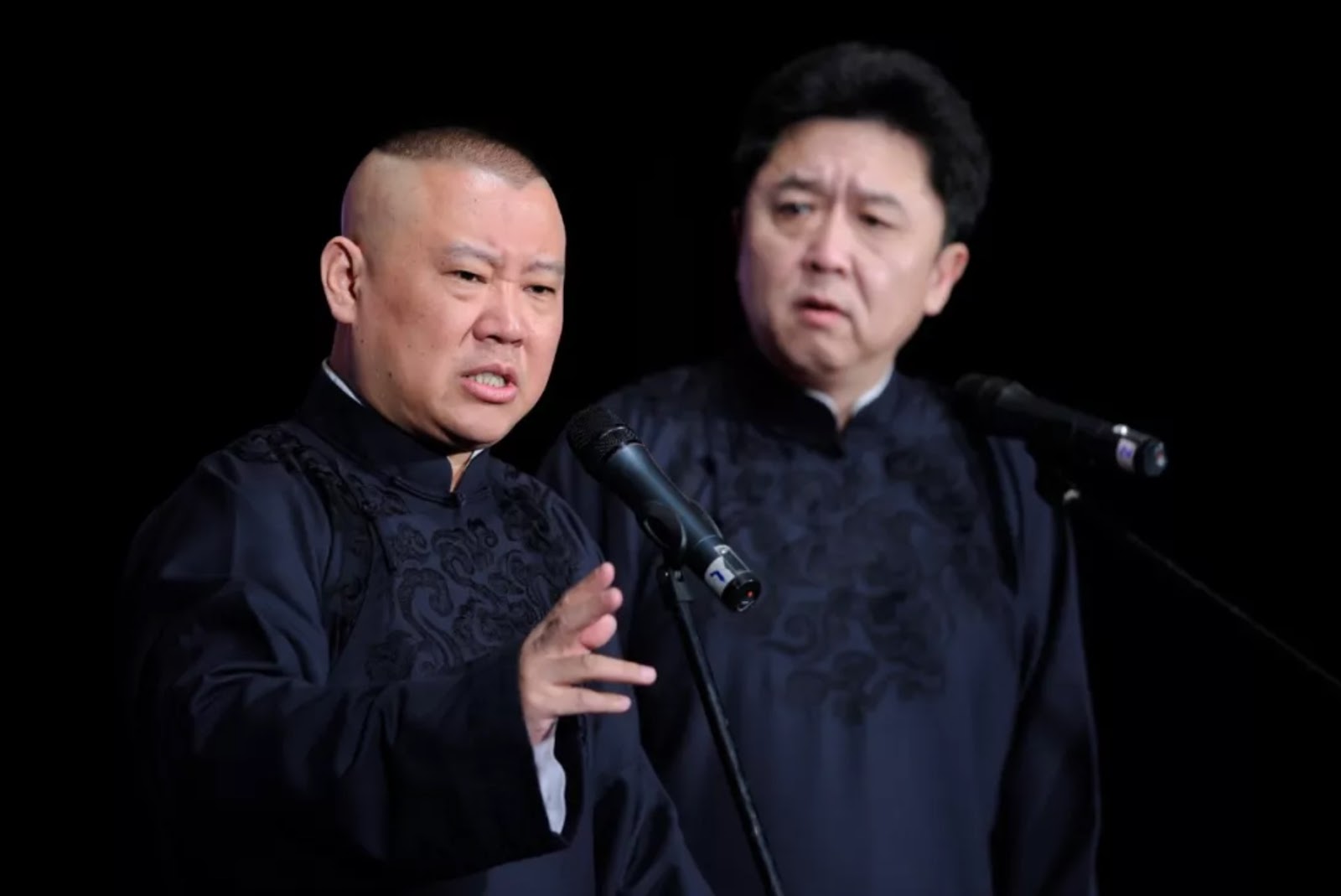Famous crosstalk artist under fire for crowdfunding abuse
Wú Shuài 吴帅, a Chinese comedian affiliated with the country’s most prestigious crosstalk performance group Déyúnshè 德云社, has caught heat from social media after his family launched a crowdfunding campaign to cover the medical expenses of his cerebral hemorrhage.

Wú Shuài 吴帅, a Chinese comedian affiliated with the country’s most prestigious crosstalk performance group Déyúnshè 德云社, has caught heat from social media after his family launched a crowdfunding campaign to cover the medical expenses of his cerebral hemorrhage.
The questionable campaign was established by Wu’s wife Zhāng Hóngyì 张泓艺 on May 1, roughly a month after the 34-year-old artist was rushed to the hospital because of brain bleeding in April. On the crowdfunding platform Shuǐdīchóu 水滴筹, Zhang set a goal of 1 million yuan ($147,830) to cover Wu’s medical bills, help his recovery, and promise him “a bright future.” In the description of the campaign, Wu’s mother further described Wu’s condition, saying that her “poor child is in desperate need of help.”
To legitimize their seeking of donations, Wu also provided some information about the family’s financial situation. According to her, Wu has no property registered to his name and the only substantial asset he owned was a car valued around 130,000 yuan ($19,200). While Wu had medical insurance, his family was considered a low-income household by government’s standards.
Although there was no mention of Wu’s relationship with Deyun Club on the donation page, internet users quickly found out that Wu was actually Wú Hèchén 吴鹤臣, who became an apprentice of China’s most famous crosstalk performer Guo Degang in 2009 and soon joined his comic troupe.
The discovery of Wu’s employment and the suspicious omission of this piece of information on Shuidichou naturally raised some eyebrows, with many skeptical netizens questioning if Wu’s family was trying to rip off well-meaning people in the wake of his illness. Amid widespread speculations, Zhang took to Weibo on May 4 to defend the campaign, saying that Wu’s monthly income was around 6,000 yuan ($887), which was not at all as high as people imagined. Zhang claimed that while the treatments only cost the family about 70,000 yuan ($10,347) so far, the ensuing expenses, which include renting a home near the hospital, hiring a patient care assistant, and getting regular checks, will eventually put the family in financial peril. Zhang also added that the family’s two properties in Beijing, owned by her parents and grandparents, were public housing units that can’t be sold and the vehicle was so critical for transportation that they couldn’t afford to lose it.
The explanation, however, didn’t land well with many internet users, who argued that Wu’s family’s financial situation was not as dire as they claimed to be, and that compared to other impoverished people in need, Wu’s family came off as deceptive and greedy. “Are you attempting to make a fortune out of your husband’s illness?” an internet user commented on Zhang’s Weibo.
Facing mounting criticism, Zhang ended the crowdfunding campaign on May 3. By that time, the campaign had raised over 140,000 yuan ($20,695) from 5,269 donors. But the termination didn’t do much to quell anger from netizens, who later discovered that Zhang purchased a smartphone priced at 12,000 yuan ($1,775) after she started the campaign. In addition, an announcement issued by Deyun Club on May 4 revealed that the troupe had already organized some crowdfunding activities for Wu.
The controversy also prompted Shěn Péng 沈鹏, co-founder and CEO of Shuidichou, to weigh in. In a Weibo post (in Chinese) published on May 5, Shen said that Zhang hadn’t yet claimed the funds, adding that crowdfunding websites in China all lack “legal and effective ways to verify a fundraiser’s financial situation,” but Shuidichou is doing its best by asking for as much information as possible from its users. In light of the matter, ThePaper.cn published an article (in Chinese) today revealing that the weak management and loose supervision of Chinese crowdfunding platforms had resulted in a growing illegal business of faking medical reports and bills.
Online crowdfunding is a relatively new concept in China, which explains why the industry is still loosely regulated. Meanwhile, as some bloggers argued, much of the criticism at Wu’s family was invalid because crowdfunding was not a tool only reserved for people living in severe poverty or suffering from deadly illness. “Some people turn to crowdfunding because they have no other options. Some people turn to crowdfunding because they don’t want to be poor because of illness. There is nothing wrong with either,” WeChat blogger Sānbiǎolóngménzhèn 三表龙门阵 wrote (in Chinese), adding that the whole story has been blown out of proportion. “For many Chinese internet users, they often prioritize righteousness over kindness, generousness, and understanding.”








